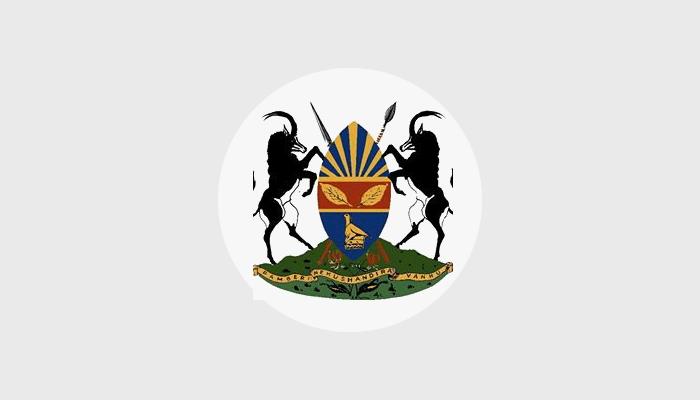News / National
Harare loses millions in potential revenue
12 Dec 2024 at 06:56hrs |
0 Views

The City of Harare is losing millions of United States dollars in potential revenue from unpaid rates, with tuckshop owners and residents among the main defaulters. This was revealed by Acting Revenue Collection Manager, Alfred Nguni, who testified before the commission of inquiry into the operations of Harare City Council since 2017.
Nguni pointed to corruption and leakages within the city's licensing department as major contributors to the revenue shortfall. "There is internal corruption and poor financial management within the city, where people connive with residents and allow leakages to exist within the system," he said.
The city has been struggling to raise revenue due to a variety of factors, with service delivery issues being one of the primary causes. "Those are not the tuckshops in town, but these are the informal sector tuckshops. At some point in, I think it was in 2023 if not 2022, the city made a resolution to collect tuckshop fees from those tuckshops that we see in our residential areas," Nguni explained.
In addition to issues with informal sector tuckshops, Nguni revealed that the council is also owed millions by residents who have refused to pay their bills, citing poor service delivery. "The city has not performed well in terms of provision of services to the residents, and the reason why residents are refusing to pay is they are citing service delivery issues," he said. "They say, 'Give us the water, and then we will pay. Collect refuse, and then we will pay.'"
Residents in various suburbs are grappling with a lack of running water, irregular refuse collection, and other service delivery challenges. Nguni stated that these failures have led to a breakdown in the relationship between the council and ratepayers. "In terms of the payment conundrum or the exchange between the city and the residents, the city is saying 'Pay us so that we provide the service,'" he added.
Another factor contributing to non-payment is the fear among residents that their money will be misused by corrupt council management. "Residents are also refusing to pay their bills fearing that their money would be misused," Nguni explained.
The city's financial difficulties are further compounded by negative publicity, with numerous reports of corruption and financial mismanagement at the council. "A lot of corruption reports about the city, a lot of financial mismanagement issues, which again affect the payment attitude of the ratepayers," Nguni said. "If I were a ratepayer and I hear negative stories, I would worry about paying my money to the city."
Finally, Nguni highlighted the speculative behavior of ratepayers due to the volatility of the exchange rate as another factor influencing the reluctance to pay.
With these issues persisting, Harare City Council faces significant challenges in improving its revenue collection and restoring the public's trust in its ability to manage the city's finances effectively.
Nguni pointed to corruption and leakages within the city's licensing department as major contributors to the revenue shortfall. "There is internal corruption and poor financial management within the city, where people connive with residents and allow leakages to exist within the system," he said.
The city has been struggling to raise revenue due to a variety of factors, with service delivery issues being one of the primary causes. "Those are not the tuckshops in town, but these are the informal sector tuckshops. At some point in, I think it was in 2023 if not 2022, the city made a resolution to collect tuckshop fees from those tuckshops that we see in our residential areas," Nguni explained.
In addition to issues with informal sector tuckshops, Nguni revealed that the council is also owed millions by residents who have refused to pay their bills, citing poor service delivery. "The city has not performed well in terms of provision of services to the residents, and the reason why residents are refusing to pay is they are citing service delivery issues," he said. "They say, 'Give us the water, and then we will pay. Collect refuse, and then we will pay.'"
Residents in various suburbs are grappling with a lack of running water, irregular refuse collection, and other service delivery challenges. Nguni stated that these failures have led to a breakdown in the relationship between the council and ratepayers. "In terms of the payment conundrum or the exchange between the city and the residents, the city is saying 'Pay us so that we provide the service,'" he added.
Another factor contributing to non-payment is the fear among residents that their money will be misused by corrupt council management. "Residents are also refusing to pay their bills fearing that their money would be misused," Nguni explained.
The city's financial difficulties are further compounded by negative publicity, with numerous reports of corruption and financial mismanagement at the council. "A lot of corruption reports about the city, a lot of financial mismanagement issues, which again affect the payment attitude of the ratepayers," Nguni said. "If I were a ratepayer and I hear negative stories, I would worry about paying my money to the city."
Finally, Nguni highlighted the speculative behavior of ratepayers due to the volatility of the exchange rate as another factor influencing the reluctance to pay.
With these issues persisting, Harare City Council faces significant challenges in improving its revenue collection and restoring the public's trust in its ability to manage the city's finances effectively.
Source - newsday
Join the discussion
Loading comments…
































